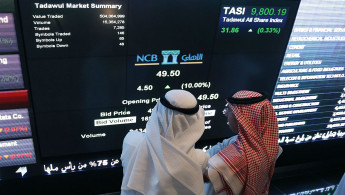Saudi Arabia says deficit halved after lean years
Saudi Arabia says the annual budget deficit was halved in the first six months of this year, as oil prices stabilise and government spending cuts pay off.
Riyadh claims its budget deficit has been cut by 51 percent to 72 billion riyals ($19.2 billions) during the first six months of the 2017, and follows a raft of austerity measures
"This result reflects an improvement in the management of public finances as a result of economic reform introduced through Vision 2030," Saad al-Shahrani, a high-ranking finance ministry official told AFP.
Riyadh has attempted to curb a growing government deficit which rocketed after oil prices plummeted in 2014 and government spending continued to escalate.
Saudi Arabia is shackled by a huge government workforce, generous benefits and subsidies for nationals, an expensive royal family, and huge military spending.
In an effort to rein in the government's reliance on oil and gas receipts and to introduce new channels of funding, Riyadh unveiled Saudi Vision 2030 headed by Deputy Crown Prince Mohammed bin Salman.
In a bid to increase government tranparency, Saudi Arabia said it would begin issuing budget figures on a quarterly basis showing the country's deficit.
In December, Saudi Arabia projected a budget deficit of $53 billion for this year.
The deficit cut has been thanks to a 29 percent increase in revenues to 308 billion riyals ($82.1 billion) and a two percent drop in government spending.
Along with other GCC countries, Saudi Arabia will introduce VAT in early 2018 for extra revenues.
It will also begin taxing foreigners working in the private sector and sell a five percent stake of state-owned oil company Aramco next year.
Yet is remains embroiled in an expensive war in Yemen and power struggle with regional rival Iran, which has seen a boost in military spending.
Saudi Arabia and the US reportedly agreed a $110 billion military deal.
Agencies contributed to this story.





 Follow the Middle East's top stories in English at The New Arab on Google News
Follow the Middle East's top stories in English at The New Arab on Google News
![Israeli forces ordered bombed Gaza's Jabalia, ordering residents to leave [Getty]](/sites/default/files/styles/image_330x185/public/2176418030.jpeg?h=a5f2f23a&itok=_YGZaP1z)

